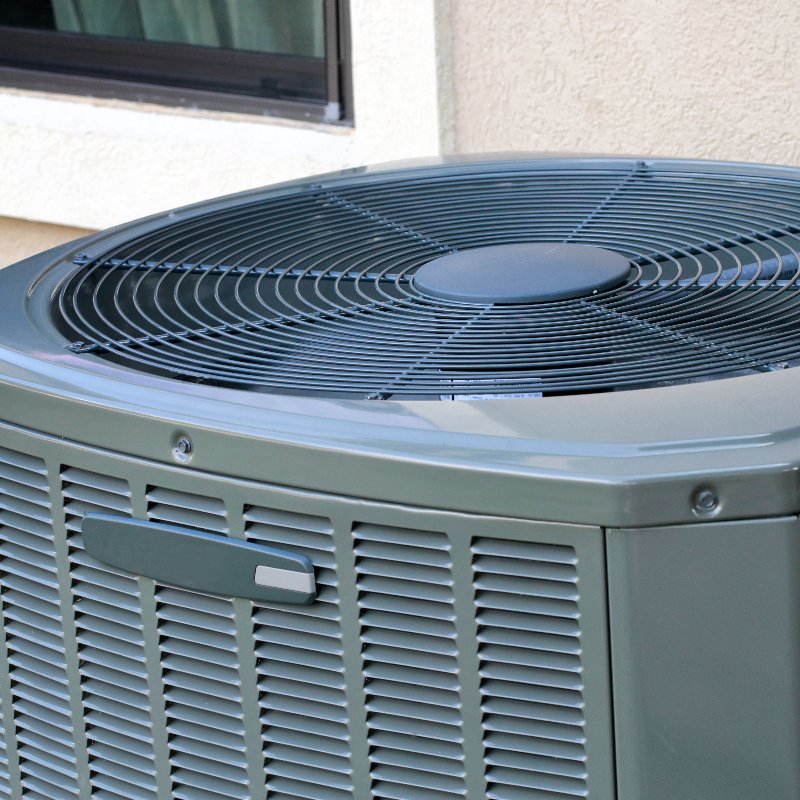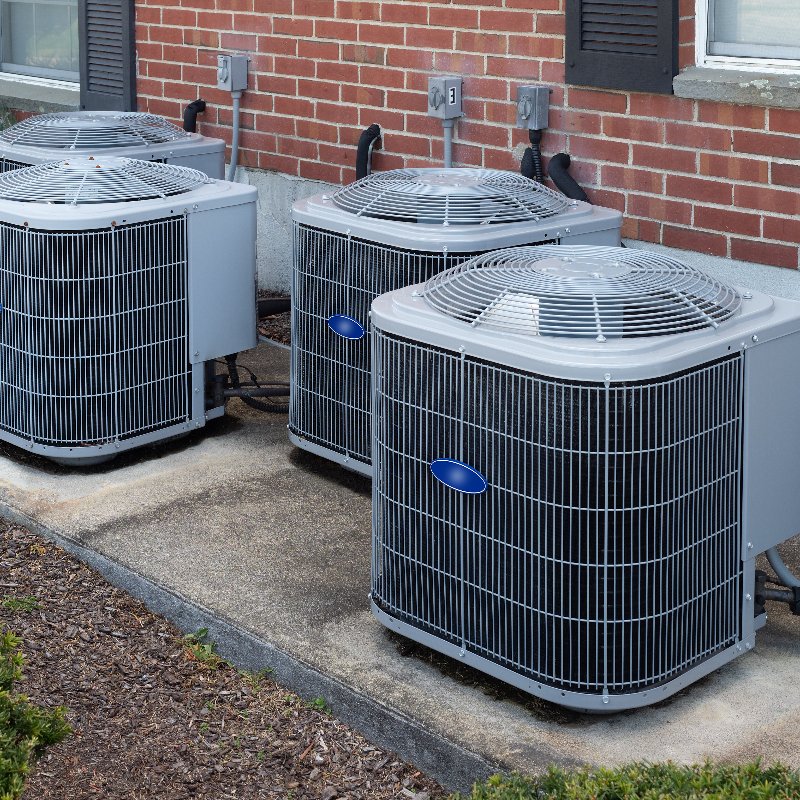
Taking Care of Your AC
When you’re running your AC day after day, there is a lot that can happen. That includes damage to your AC compressor. So, now, before those hot summer days get even worse, it is a good time to have your HVAC system checked out and to have any necessary AC compressor repairs taken care of.
What does the AC compressor do?
There are several different types of air conditioning systems, but every one of them will have an AC compressor. This is the component that does the cooling down, so when it goes out, AC compressor repair is a must if you’re going to stay comfortable.
The AC compressor is the part that controls all the other components by compressing the refrigerant. This is the hardest working component in an air conditioning system. The process of the cooling down function is a bit complicated, which is why you should always have a licensed technician do any AC compress repairs needed.
This component moves the outside air into the Freon, aka the refrigerant, and that converts that heat into colder air. After the air has cooled down, the liquid refrigerant becomes a heated vapor that travels back to the AC compressor. There it pulls the heat out of the house and moves the excess heated air out using fans and air ducts. work. This process continues until the desired temperature setting is reached on the thermostat.
What happens when an AC compressor goes bad?
Here are five things that can happen when the AC compressor isn’t working:
1. Compressor won’t turn on
The first thing you’ll notice is how hot it is inside your house. The fan will be blowing, but the air coming out isn’t cool. Adjusting the thermostat down doesn’t help, that is when it is time to call professional help for AC compress repair.
2. System blows warm air
If the air condenser seems to be running, but just warm air is blowing, this means the compressor isn’t getting the refrigerant pumped through the system. AC compressor repair may fix it, but if it is leaking the refrigerant, it is time to replace the unit. Turn the system off and schedule an appointment for an inspection of possible AC compressor repair.
3. Circuit breaker keeps tripping
If the circuit breaker to the condensing unit keeps tripping, this is often an indication that AC compressor repair is needed, but it can also be a problem with the circuit breaker. A professional AC technician can check both issues, as well as other possible issues, and advise you on the best solution.
4. Outside unit vibrates on start-up
If the condensing unit shakes each time it starts up, that is a “hard start” and an indication AC compressor repair or replacement is needed. A certified technician can advise you accordingly.
5. Air condenser is noisy
If the outside unit of your air conditioner is sounding louder than usual or there are strange noises coming from the unit, it is time to call a professional for AC compressor repair.
What causes AC compressor failure?
The following are the 10 most common causes of a failing AC compressor, repairs should be made immediately:
1. Electrical Failure
This can be from damaged contactors, fuses, and wires from acid build-up in the system. Power surges can also cause AC compressor failure. A trained AC professional will detect any acid buildup during routine inspections and make any AC compressor repair needed before this happens.
2. Condenser Coils Blocked
Maintenance is key in your air conditioner working correctly, so when you neglect basic maintenance, like changing the filter, the condenser coils can become blocked from dirt, dust, and grime. When they are blocked, they can’t release the heat as needed and the compressor will overheat and quit.
3. Overheating Compressor
A common problem that makes AC compress repairs are needed is an overheated compressor. This can be caused by the direct sun on the outside unit or inadequate ventilation around the outside unit from tall grass and trash.
4. Evaporator Motor Displacement
When the evaporator motor is displaced, the refrigerant is forced to return to the compressor, and the oil is pushed out of the compressor. This removes all needed lubrication, and the AC compressor becomes less efficient, causing it to quit working.
5. Refrigerant Level Low
If the AC compressor doesn’t have the right level of refrigerant, it can’t work correctly. No, you shouldn’t have to get the refrigerant refilled, because the unit should use it up. If it is low, it is because there is a leak in the system. A professional technician can inspect the issue and make any AC compressor repair or may recommend replacing the unit.
6. Too Much Refrigerant
This can only happen when an inexperienced, untrained person has refilled the refrigerant. Never have anyone that isn’t certified or licensed work on your air conditioning system, especially when it comes to AC compressor repairs.
7. Lack of Lubrication
Without proper lubrication, an AC compressor can’t function optimally, which will wear the interior components out and the AC compressor must work harder. Lubrication is needed so the internal parts of the compressor work smoothly. Routine inspections and maintenance by a licensed professional will keep this from happening.
8. Damaged or Clogged Suction Lines
The suction lines in the refrigerator part of the compress will develop cracks and holes which can affect how the refrigerant flows through the system. This creates stress for the AC compressor to pump harder and longer than needed and will decrease the cooling power of the unit. A professional HVAC technician can inspect the problem and make any AC compressor repairs needed to the lines.
9. Debris and Dirt in the Outdoor Unit
As we stated earlier, debris, dirt, and grass that is sucked up against the outside unit of your system will block the air vent and cause the system to overheat, even quit working. This is another issue that can be avoided with routine inspections and maintenance services by a professional.
10. Incorrect Suction Lines Sizes
If the suction lines aren’t the right size, it will cause the AC compressor to overheat because of too much pressure. This happens when an inexperienced person has worked on the unit. Wrong sizing can build pressure and cause the compressor to overheat.
How do I check my AC compressor?
Checking the AC compressor motor can be done by following these steps:
- Disconnect the unit from the power source.
- Take off the top of the outdoor condensing unit.
- Unplug the compressor’s three-prong plug.
- Measure and record the resistance of each winding with a multimeter set to OHMS.
There are three possible motor winding failures. They can be broken or separated, which is referred to as an open winding. The insulation on the windings can come off or become loosened, which leads to a short in the windings. Meanwhile, a grounded winding can occur if the wire is broken inside the insulation making contact with the compressor’s casing or the ground.
The best scenario is to call a professional technician to inspect and test the AC compressor, repairing or replacing it as needed. The work will come with a warranty, and you can be more certain the repair is done correctly.
How long should an AC compressor last?
With proper maintenance and upkeep, an AC compressor, and the refrigerant inside it should last no less than 12 and a typical maximum is 15 years.
Can you repair an AC compressor?
Many times, yes, an AC compressor repair is possible by a certified technician that knows how to repair air conditioning components.
Is it worth it to replace an AC compressor?
If the unit is 8 to 10 years old and all the other components are in good working condition, then replacing the compressor could give you another 5 years before replacing the entire unit.
Why did my AC compressor overheat?
This can be caused by several factors, typically it is a dirty air filter. Cleaning the air filter and around the inside of the HVAC system will often fix this. If not, it could be the suction hoses or a wiring issue, which should be checked by an experienced technician.

In Closing
When the AC compressor is freezing up, check the filter and make sure it is clean and clear. Check the outside unit is free of any dirt, debris, or grass up against it. Turn the unit off for 30 minutes to an hour, allow it to thaw, and try again. If it still freezing up, it may be low on refrigerant, which could indicate it has a leak. This will need a professional service call.
